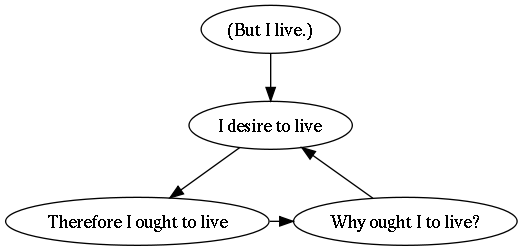Just a little longer...
I've got two more semesters of school left, but only a total of 22 credits. Next Spring I'll only be taking two courses, if all goes well this coming semester which I start on the 3rd.What am I taking this semester? I need to satisfy an Art requirement, so I'm taking a class on user interface and experience design on the recommendation of a housemate. I'm not entirely sure what I should expect, but I think it will be easy enough to pass given I've had jobs designing application screens. Maybe my UI ideas aren't the best but I can do the work. I need to satisfy a 4-credits-of-anything requirement, so I'm taking a database course which is beneath me (it was beneath my housemate and I know more about databases than he does) for three credits, then a 1-credit "job preparation" course which only lasts the first few weeks and shouldn't be a problem as I've already got a good resume, LinkedIn account, business card (even if outdated), and previous job experience...
I'm taking a project course which will continue my radar project from last semester. I'm also taking an intro Electricity and Magnetism physics course, which I'm not looking forward to. Giancoli is shit. The professor isn't known as a good teacher (fine person of course). I want to learn electrostatics as a special case of electrodynamics and in the language of geometric algebra, not learn electrostatics as a series of disjointed statements and unreal examples followed by "and hey, here's Maxwell's equations!" during the last few weeks. Feynman's book takes the right approach by starting with Maxwell's equations and simplifying for electrostatics, I just wish he used geometric algebra instead of vector components...
See Full Post and Comments
Simple logic...
I came across these two images while cleaning up my home folder:

They're from some time in 2010, when I was in an argument with a former roommate who is an Objectivist. He was having trouble seeing the issue with the is-ought problem in philosophy, believing it to be solved. The desire to live must have come up, which is part of the base of his philosophy, and he tried to assert it is an objective fact that living creatures desire to live. I gave two counter-examples, thus deductively disproving that assertion. Surely if a desire to live is an is, it cannot so simply be overridden, therefore when it is overridden, that implication's premise must be false. The second image shows that the is-ought problem easily leads to circular reasoning, which is part of why it's a problem to begin with. Circular reasoning is bad in deductive logic!
See Full Post and Comments
Recent Posts
2026-01-06
2025-12-31
2025-11-10
2025-10-15
2025-08-18